For a deeper-dive into additive manufacturing, you can now subscribe to our Youtube channel, featuring discussion, de-briefs and shots of 3D printing in-action. Find out more here.
In this edition of Sliced, the 3D Printing Industry news digest, we cover the latest business developments, partnerships, and acquisitions in the additive manufacturing sector.
Today’s edition features R&D funding awards, streamlining web tools, 3D printed housing disputes, additive manufactured speakers, a made-at-home medical cast and a 3D scanning-based martial arts app.
Read on for the most recent updates from Meltio, Calibry, Mighty Buildings, Solukon, 3Degrees, Shapeways, CeramTec, RIZE and more.
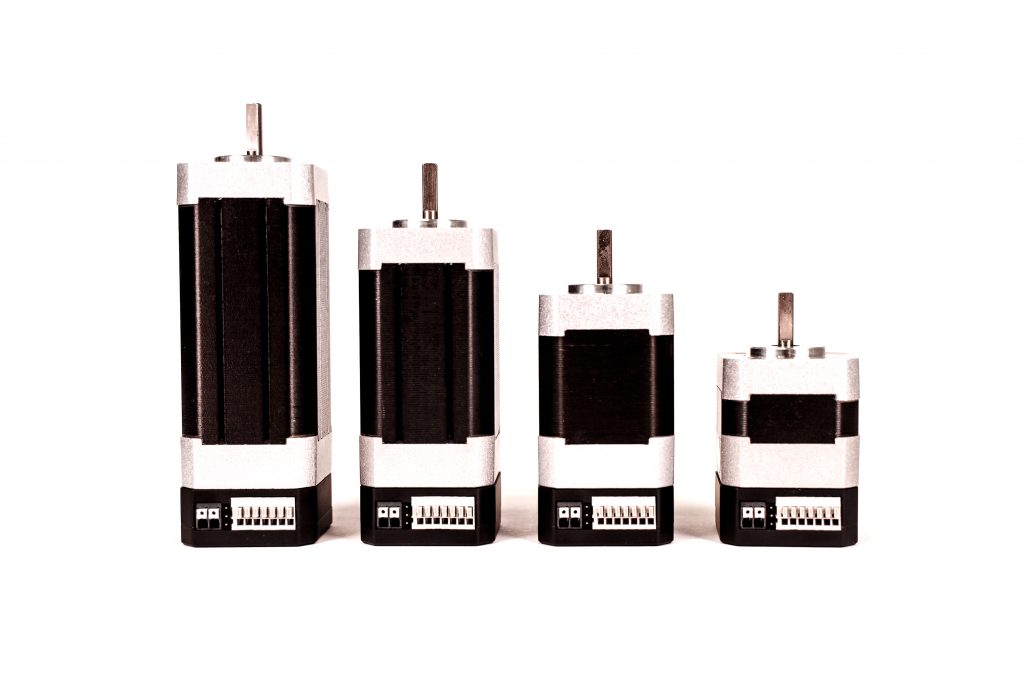
IQ Motion Control and HBD’s hardware launches
Starting this week with the latest hardware news, industrial motor manufacturer IQ Motion Control has announced the launch of its new Fortiq BLS42 servo motors. Composed of a straight-stack, magnet BLDC motor with an integrated controller and magnetic rotary encoder, the modules are designed to maximize torque output while minimizing vibration.
IQ says that the Fortiq BLS42 can reach up to 4,000 rpm while taking up 50% less volume than traditional industrial servo motors, meaning that it offers superior performance in a smaller package. Suitable for use within 3D printers, conveyor belts or robotic joints, the new modules are available for pre-order in four different sizes from Crowd Supply.
Metal 3D printer manufacturer HBD, meanwhile, has released a brand new large-format machine at the TCT Asia 2021 trade show. Although little has been publicized about the system, it’s known to be called the ‘HBD-1500’ and features a 460 x 460 x 1500 mm build volume, making it one of the widest 3D printers on the Powder Bed Fusion (PBF) market.
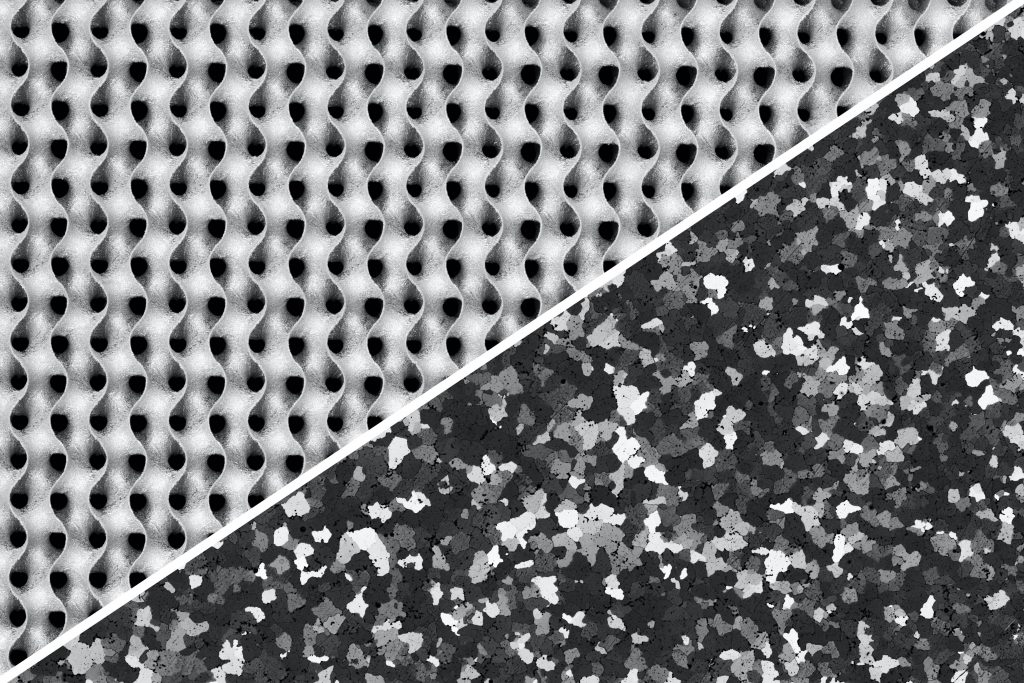
Alloyed and 3Degrees gain R&D funding
Member of the Casting Hybrid AM Parts Production or ‘CHAMPP’ consortium, Alloyed, has revealed that the group has been awarded a “significant grant” to develop a new hybrid production process, that addresses the limitations currently preventing the use of 3D printing within the production of electric vehicle (EV) components.
According to Alloyed, AM’s speed, size limit and cost-per-part is often higher than that of casting, thus CHAMPP has now been enlisted to attempt to combine the two technologies. Using its Alloy by Design (ABD) platform as a basis, the group ultimately aims to enable automotive firms to cast standard parts across multiple models, before utilizing metal 3D printing to customize them where required.
“We are delighted to be a part of the CHAMPP program and bring our considerable experience and expertise to the project,” said Sajjad Amirkhanlou, Programme Director at Alloyed. “It is vital for AM — if it is to fulfil its true potential — that the speed, size, and cost limitations are addressed fully. Through the CHAMPP program, we will tackle these issues head-on by taking a multi-disciplinary approach.”
In similar news, 3D printing consultancy firm 3Degrees has been awarded funding via a Rapid Innovation Project Call from U.S. AM accelerator America Makes. Backed by $50,000 from the U.S. Air Force Research Lab, the project will see the firm customize its traceAM platform to collect and archive America Makes’ data, allowing it to sort its past and future programs by key technical parameters.
“Because of its unique role within the AM ecosystem, America Makes possesses an unparalleled amount of data,” explained Dr. Mike Vasquez, Founder of 3Degrees. “With this work, we’ll deliver a tool that is simple to use and enables users to quickly search, analyze and compare this robust data with a click of a few buttons.”
“We are confident this tool will produce insights that support manufacturing in the U.S. and benefit all 228 current and future America Makes members.”
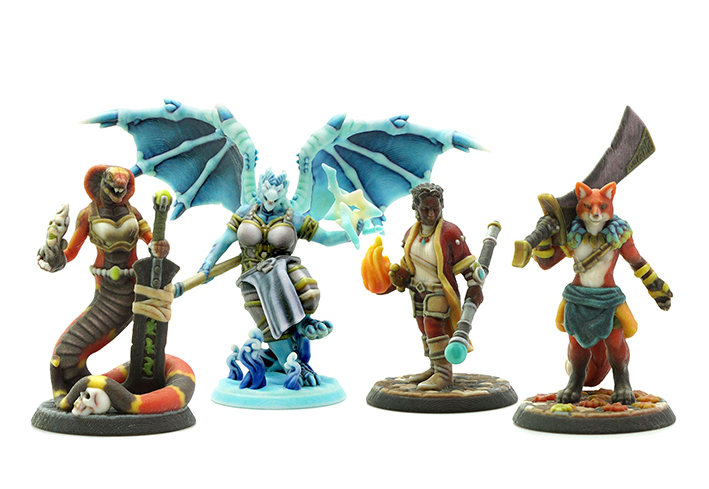
Business collaborations from Shapeways, Meltio and more
3D printing service provider Shapeways says that it has partnered with inkjet printer manufacturer Mimaki to “take full-color 3D printing to the next level.” Through Shapeways’ platform, its clients can now access high-definition production via Mimaki’s line of materials and systems, which use specific color profiles generated by characterization data to create models with fine details, gradients and textures.
“Adding full-color printing from Mimaki brings vast depth and detail to applications across multiple industries,” said Aidan O’Sullivan, VP of Operations at Shapeways. “At Shapeways, we leverage world-class printing technologies and apply our vast expertise and rigorous quality procedures to help change the landscape of additive manufacturing.”
Elsewhere, post-processing machine manufacturer Solukon has agreed a distribution deal with Hampshire-based precision cleaning firm Turbex, that will see it become a reseller of Solukon’s depowdering systems in Great Britain and Ireland, as well as helping clients to explore the potential of its proprietary Smart Powder Recuperation technology.
“Solukon is the pioneer of depowdering of metal laser powder bed fusion parts – which means removal of trapped powder and reclaiming it without contamination in a repeatable, certifiable way,” said Michael Sattler, Global Sales Director at Solukon. “It therefore seems logical to cooperate with a cleaning expert for one of our key markets, who is perfectly familiar with the business landscape in the region.”
Over in France, 3D printer OEM Meltio has also announced a new distribution agreement, with advanced manufacturing reseller Multistation SAS. Through the deal, Multistation is now set to become the prime distributor of Meltio’s technologies in the French market, both selling the company’s machines and providing support to product adopters.
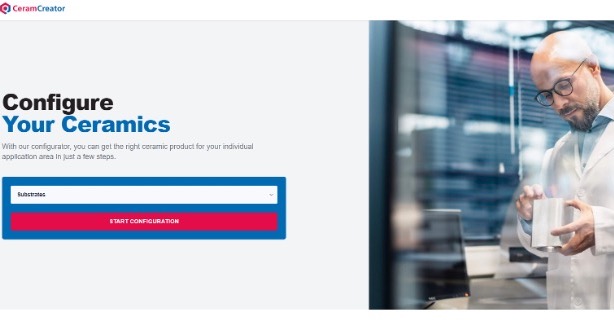
CeramTec releases customization tool
Ceramic specialist CeramTec has launched a new online configurator tool that enables clients to quickly identify the ideal product, before digitally customizing it to meet their own specifications. Through the web-based platform, the firm says that users are now able to upload CAD files, generate a model for feasibility checks and order parts by date and quantity, in a “self-explanatory and intuitive way.”
“We are pleased to introduce ‘CeramCreator,’ which simplifies complex process chains and shortens long quotation processes, said Richard Boulter, Industrial President of the CeramTec Group. “The tool was developed together with Axel Springer hy and the two Berlin-based start-ups Clous and Aucta, and is available on our homepage as of today.”
“With CeramCreator, our customers get to the desired product in less than six steps.”
Calibry 3D scanning used to create mobile game
Russian start-up Fora Robotics has developed a means of using Calibry’s 3D scanning technology to capture and upload people’s likenesses into a mobile video game. In the firm’s upcoming app called ‘Fight For Yourself’ or ‘FFY,’ players are able to engage in fights, either between avatars of themselves or pre-made characters, in martial arts-themed battles.
At present, the company is negotiating with a national martial arts team to get them to participate in the project, and they ultimately aim to include professional athletes in the final release. Already though, the game has the potential to settle office disputes, as colleagues will soon be able to upload themselves, and decide who broke the coffee machine once and for all.

AM applications: From toys to trisonic speakers
We kick-off this week’s application news with toy manufacturer Little You, as the firm has launched a new range of anime models that can be customized by kids online and shipped out to their doorsteps. Using RIZE’s 3D printers and recyclable materials, Little You is able to make its toys eco-friendly yet durable, and suitable for hours of play, while leaving it wiggle room to scale its operations where needed.
“With RIZE, Little You sets our users’ imagination free to make amazing full-color custom toys with the click of a mouse – and gives us another way to reinforce our brand,” said Christina Guo, Founder of Little You. “Together we’re taking our users’ experience to the next level.”
Audio technology developer Syng, meanwhile, has revealed that utilizing 3D printing has enabled it to optimize the build of its new Cell Alpha trisonic speaker system. Designed by the former head of Apple’s industrial design group Christopher Stringer, the company says that its first commercial product introduces “a new standard in spatial sound.”
Leveraging HP’s MJF technology and working with Forecast 3D, Syng has been able to 3D print the Cell Alpha’s ‘halo’ and ‘horn’ components, as well as integrating them seamlessly into its overall design. Producing the parts separately rather than combining them into a single unit has ultimately allowed the firm to improve the sound quality of its new speaker system at a competitive price point.
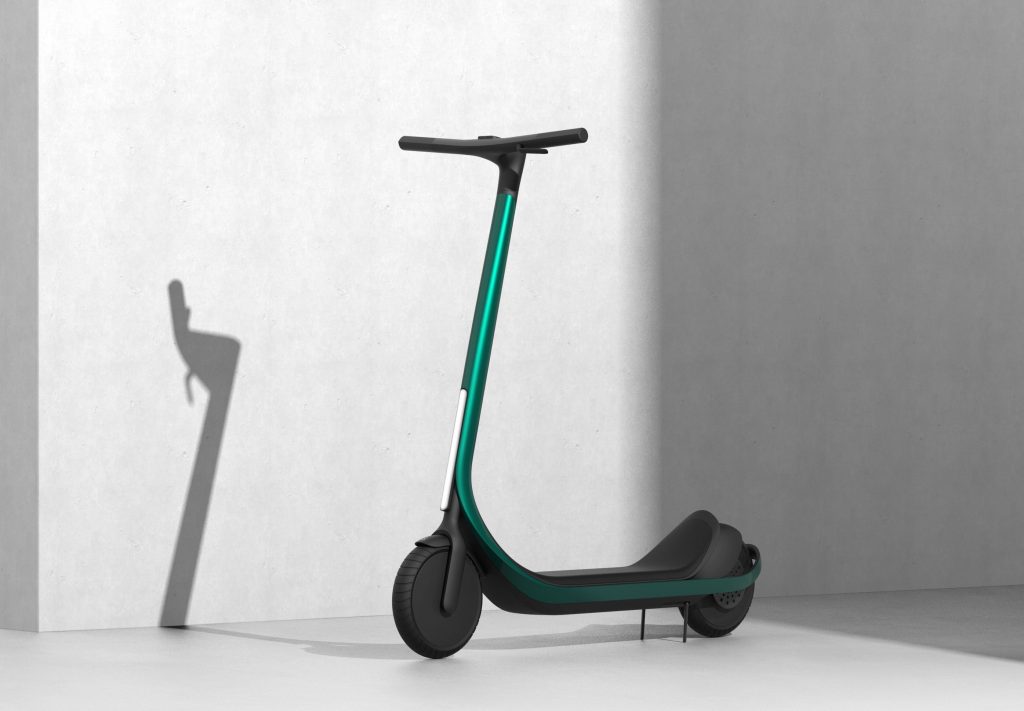
Having previously additive manufactured unibody e-bikes in July 2020, composites specialist Arevo has now worked with the award-winning studio Branch Creative to design and 3D print the ‘Scotsman’ electric scooter. Featuring a unified carbon fiber composite frame, handlebar and stem, the two-wheeler has been constructed without the use of any adhesives, making it lightweight yet impact-resistant.
With a top speed of 45 mph and 158kg weight limit, Arevo’s 2000 series scooter, as well as its slightly scaled-down 500 and 1000 editions, are priced between $2,999 and $4,999 on indiegogo, with shipping set to begin in December 2021.
“In designing the Scotsman, we wanted to elevate the scooter experience to a sophisticated alternative means of transportation,” said Josh Morenstein, Founder of Branch Creative. “Being able to 3D print in continuous carbon fibre composite enables us to pursue designs not otherwise possible in other materials and fabrication techniques.”
Lastly in application updates, German product design agency Thinkable Studio has revealed the “transformative” impact that adopting Stratasys’ J55 3D printer has had on its prototype production process. Using the system’s color material finishing or ‘CMF’ capabilities, the firm is now able to rapidly produce mock-ups that better resemble the final product for clients in the consumer, industrial and medical markets.
Adopting Stratasys’ KeyShot 10 3D rendering software has also enabled Thinkable Studio to embed CMF information into the digital files of its products, serving to streamline its entire design process, and having already 3D printed a scale-model chair, it now aims to use its J55 system to offer its services to clients in the furniture sector moving forwards.
“We are now able to introduce CMF models much earlier in the design process compared to traditional methods, and produce ultra-realistic prototypes that are pretty much identical to the final product,” said Jörg Schlieffers, Founder of Thinkable Studios. “Customers have been blown away by the accuracy of the models we can create.”
Breaking down 3D printed walls?
Back in March 2021, Mighty Buildings announced its intention to 3D print a community of homes in Rancho Mirage, but regulatory issues have since emerged that could delay the project’s implementation. The company’s program partner, the Palari Group, has since clarified that it hasn’t actually bought the required land yet, but still expects the acquisition to progress as planned by June 2021.
However, Rancho Mirage city officials, have reportedly said that they don’t believe the homes will be allowed under current state building codes, given that the firm’s next-gen material hasn’t been granted local authority approval. To get around this, Mighty Buildings’ Co-founder Sam Ruben has said that the company would be prepared to build the properties solely on the basis of state consent, if it needed to.
“By [getting state approval], we take the liability away from the city and the state takes on that liability for that approval,” Ruben said. “[That] can make things easier for the city in that regard, since they’re not on the hook the same way they would be for the local approval.”
In similar construction-related news, ballistics experts are currently working with the U.S. Army and U.S. Navy to test the durability of 3D printed walls by attacking them with different types of ammunition. Based at Tyndall Air Force Base in Florida, the trials are designed to assess the potential of additive manufactured buildings for deployment within combat zones.
“We not only bring new materials to the warfighter, but we also need to test those materials when they are in a combat environment,” Alex Oviedo, a System Engineer at the Naval Facilities Engineering and Expeditionary Warfare Center told Channel 7 news. “So we need to test ‘what is their strength?’ and ‘how are they are going to react to munitions?’”
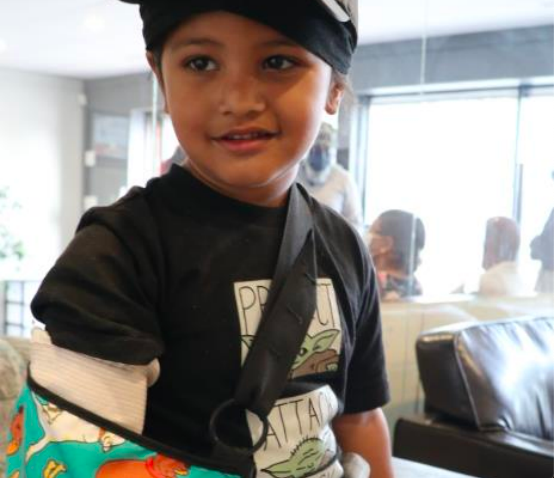
Three-year-old gets 3D printed cast
FInishing this week’s round-up with a good news story, the parents of three-year-old Anmol Singh have 3D printed him a cast, after he broke his arm falling from a stool while playing. Rather than using a conventional cast to support his fractured limb, which are often prone to disintegration when exposed to moisture, Anmol’s parents opted to 3D scan and print him a more durable support instead.
Produced using a HP 580 Jet Fusion system and PA12CB biocompatible nylon, the resulting cast proved to be lightweight, breathable and personalizable, providing young Anmol with a more comfortable means of supporting his elbow joint and wrist, while taking just two days to manufacture, reducing the time he would’ve had to wait by five days.
“As parents, it’s extremely important to us to provide the best care for our kids,” said Anmol’s parents Hargurdeep Singh and Harman Jot. “Sometimes traditional is not the most optimal process, so we decided to leverage technology to speed up the recovery process with our son’s injury.”
To stay up to date with the latest 3D printing news, don’t forget to subscribe to the 3D Printing Industry newsletter or follow us on Twitter or liking our page on Facebook.
Are you looking for a job in the additive manufacturing industry? Visit 3D Printing Jobs for a selection of roles in the industry.
Featured image shows the Sliced logo on top of a screenshot from Fora Robotics’ 3D scanning-based fighting game. Image via Fora Robotics.



